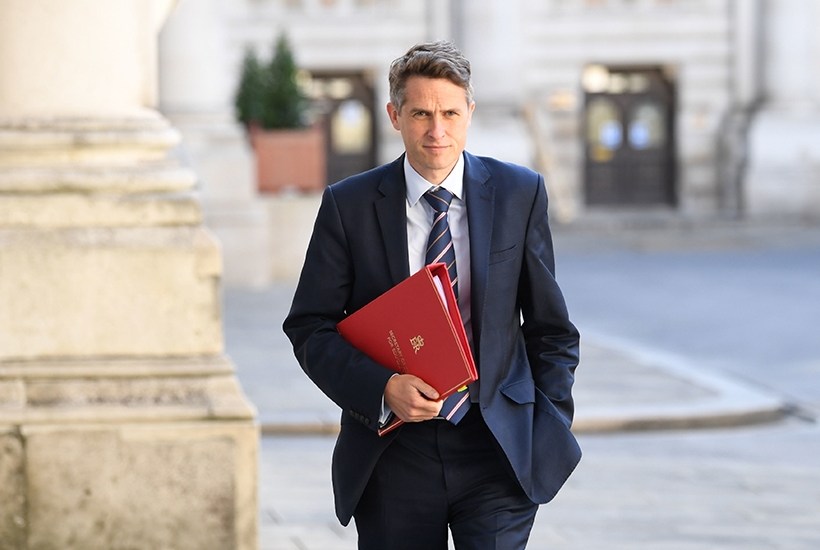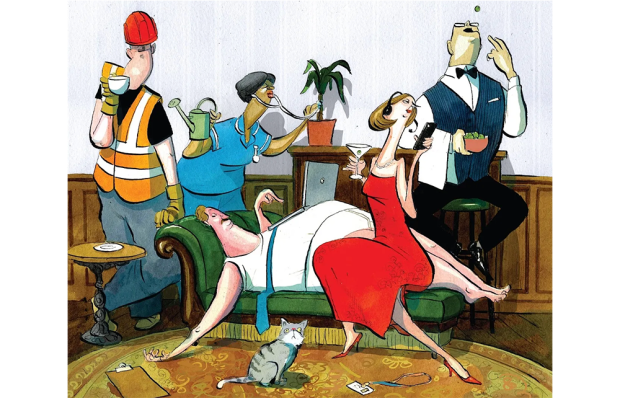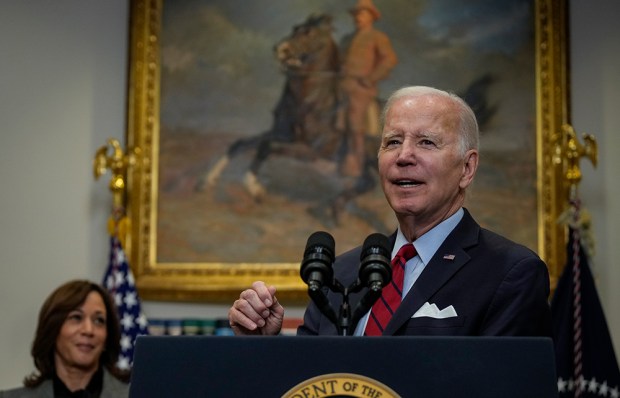When Boris Johnson tried to call a general election in September last year, everyone around him assumed that Jeremy Corbyn would agree. When this didn’t happen, Johnson found himself out of ideas. Dominic Cummings’s plan was to keep calling for an election, keep holding votes and hope the resolve among opposition parties would break. The Prime Minister decided to get a second opinion. He wanted someone who knew parliament and its dark arts, and could advise him how to fight and win its battles. He summoned Gavin Williamson.
On being presented with the plan, the former chief whip gave a long pause. ‘It’s a preposterous plan,’ he finally replied. ‘And that’s exactly why you should do it.’ It worked. Johnson eventually got his election and won his majority of 80. In the process, the alliance between No. 10 and Williamson was strengthened. His advice had been called on before, to guide Johnson’s leadership bid through parliament. A relationship approaching mutual respect was formed — a commodity in short supply in government these days.
This helps to answer a question being asked a lot in Westminster this week: how on earth can Williamson keep his job? After presiding over the humiliation regarding exams, after swearing he would not U-turn and then being forced to, why hasn’t he been sacked? The question is being posed not just by opposition politicians but also by Tory MPs and aides, many of whom want a scalp. But this misjudges both Williamson’s place in the government and how the Johnson operation works.
There is no doubt that the U-turn is an embarrassment. Education ministers spent the days leading up to it insisting to MPs that the government would not adopt the Scottish strategy of predicted grades. The hope in government is that the sheer size of this U-turn — a full reversal — will make it a brief humiliation which voters quickly forget. Conservative MPs may have longer memories.
For many frustrated Tories, the debacle confirms their belief that the cabinet is predominantly made up of ministers picked for loyalty rather than talent or experience. ‘They are mainly incompetent or spineless,’ complains one backbencher. ‘Sometimes they manage both.’ There are questions over whether the current setup can last. ‘I feel we are in a similar place to the Macmillan government after the 1959 election,’ an MP says. ‘The majority goes up and everyone thinks they’re all-conquering. But they very quickly run into a series of problems and in 1964 it’s Labour.’
Many Tories feel the Department for Education has failed pupils several times over. It agreed to cancel exams that could have been feasible under social distancing and failed to fulfil the Prime Minister’s promise to return all primary-school pupils before the summer holidays. Then there was the U-turn in June over free school meals. The argument goes that Williamson lacks both knowledge of the education sector and the genuine interest that would allow him to make substantial changes.
But as embarrassing as the schools row is, Williamson’s case is not unique. Similar versions of this drama have played out in Edinburgh, Belfast and Cardiff, as well as in much of Europe. John Swinney, Williamson’s counterpart in the Scottish government, has also faced calls to go. The decision, made as far back as mid-March, to cancel exams and rely on algorithms had inevitable consequences that were underestimated by Williamson. But they were underestimated by many other people too, including those in No. 10. It’s now unlikely that a suspension of schooling will be repeated.
Johnson has said there is a moral duty to get all children back to the classroom when the holidays end. This is the area where excuses won’t be enough. ‘If the plan works, great, we have succeeded. If it doesn’t, it’s all Gavin’s fault,’ says a senior figure. With Johnson choosing to stick with Williamson, attacks from newspaper front pages are unlikely to dislodge him. The No. 10 operation prides itself on not bowing to pressure — just as it refused to do in the case of Cummings’s trip to Durham during lockdown.
Crucially, No. 10 sees Williamson as a useful ally. Downing Street figures trust him to read the mood of the Commons, just as he did in December, as it’s something they have little interest in doing themselves. Not all MPs believe this is Williamson’s skill: some say it’s a ‘media myth’. But his record, first as an aide to David Cameron, then chief whip to Theresa May — and his role in Johnson’s successful leadership campaign weeks after being sacked by May — shows what a formidable operator he can be.
Of course, no minister’s job is ever completely secure, but No. 10 have other factors to bear in mind. They expect more problems with party management. Some backbenchers hope the exams episode will trigger a new way of governing in Downing Street, with ministers like Williamson swapped for more free-minded contenders who will bring a fresh approach. However, there are no signs of a reshuffle in the near future, though government insiders believe the Education Secretary will eventually move brief. The last one created bad blood in the party among the disappointed — those let go or demoted, and those passed over for promotion, the has-beens and never-gonna-bes.
It’s these two groups that could cause Johnson’s government the greatest problems in the short-term. Ambitious politicians with little hope of patronage are the most dangerous type of backbencher a PM can face. One minister worries that if you add up all of the ex-ministers and the never-ministers, the total is already close to ‘the danger point’ of 40, at which the Tory majority of 80 evaporates.
Going into a difficult autumn and winter, the Prime Minister needs to be careful of amassing more enemies. He and his team do not plan to make Williamson one of them.
Got something to add? Join the discussion and comment below.
Get 10 issues for just $10
Subscribe to The Spectator Australia today for the next 10 magazine issues, plus full online access, for just $10.
You might disagree with half of it, but you’ll enjoy reading all of it. Try your first month for free, then just $2 a week for the remainder of your first year.















Comments
Don't miss out
Join the conversation with other Spectator Australia readers. Subscribe to leave a comment.
SUBSCRIBEAlready a subscriber? Log in